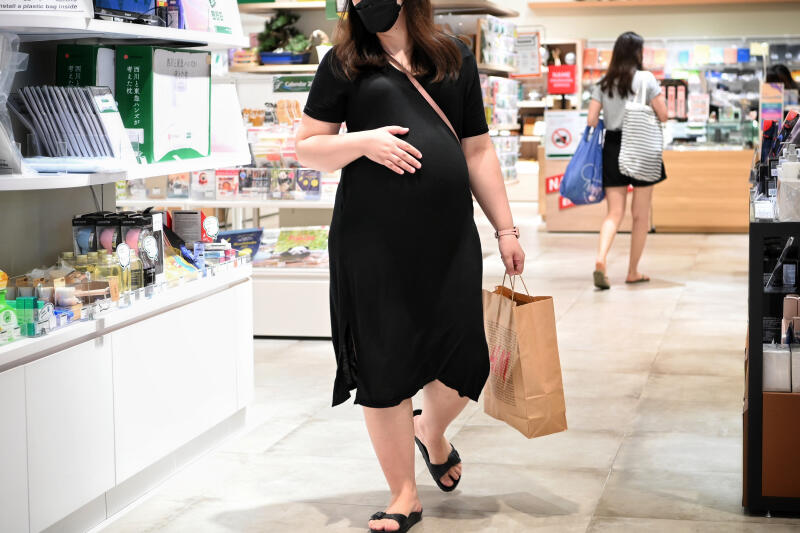Infants, pregnant women with Covid-19 can recover at home by themselves or under primary doctor's care
Sign up now: Get ST's newsletters delivered to your inbox

MOH said these patients should continue to monitor themselves closely for signs and symptoms of concern.
ST PHOTO: KUA CHEE SIONG
Follow topic:
SINGAPORE - Infants and pregnant women who test positive for Covid-19 will be able to self-isolate and recover at home under Protocol 2 from Oct 25.
This is because the risk of Covid-19 being severe in these two groups - women less than 36 weeks pregnant and infants aged three months to one year - is low, said the Ministry of Health (MOH) on Saturday.
The assessment is based on trends from Omicron subvariants here, it added.
Currently, infants and pregnant women follow Protocol 1, where they will be placed on the Home Recovery Programme and MOH will check on their recovery.
If the home environment is not suitable, patients can recover at appropriate care facilities.
Under Protocol 2, they can recover by themselves at home or under the care of their own primary doctors.
They should self-isolate for at least 72 hours and take an antigen rapid test (ART).
Protocol 3 is for those who have been identified as a close contact of an infected person. They should exercise social responsibility by performing an ART.
The change in health protocols for the two groups is part of MOH's regular review of the increased risk of severe infections among vulnerable people, said Singapore’s director of medical services Kenneth Mak at a press conference held by the ministry on Saturday.
He added that paediatricians and gynaecologists had looked into the cases of infants and pregnant women who have been admitted to hospital and assessed that the patients could be safely monitored at home.
The change is beneficial as it reduces the number of hospital admissions and people needing to stay in hospitals, he said.
"Surely it's more pleasant to keep children in homes with their parents rather than being in the hospital in a very strange environment which they are very frightened of," he added.
The ministry said these patients should continue to monitor themselves closely for signs and symptoms of concern such as shortness of breath, chest pain or persistent fever above 38 deg C while recovering at home.
If signs and symptoms worsen, they should see a doctor, it added.
Meanwhile, about 3,000 patients with a high level of needs but not required to be hospitalised have safely recovered at home with the support of hospitals' outreach programmes, said Associate Professor Mak.
"Infectious diseases doctors now have greater confidence that more patients with risk factors for severe infection may be safely monitored out of the hospital, whether at home or in the Covid-19 treatment facilities," he added.
"And therefore, we continue to tweak our admission criteria based on our continuing-to-evolve experience so that more patients may recover and be monitored safely at home."
For Covid-19 patients recovering at home, telehealth services will be expanded to provide greater support, he said.
Oral antiviral medications made available earlier this year for vulnerable patients and for those recovering at home will also help to further reduce risk of deterioration, he added.

